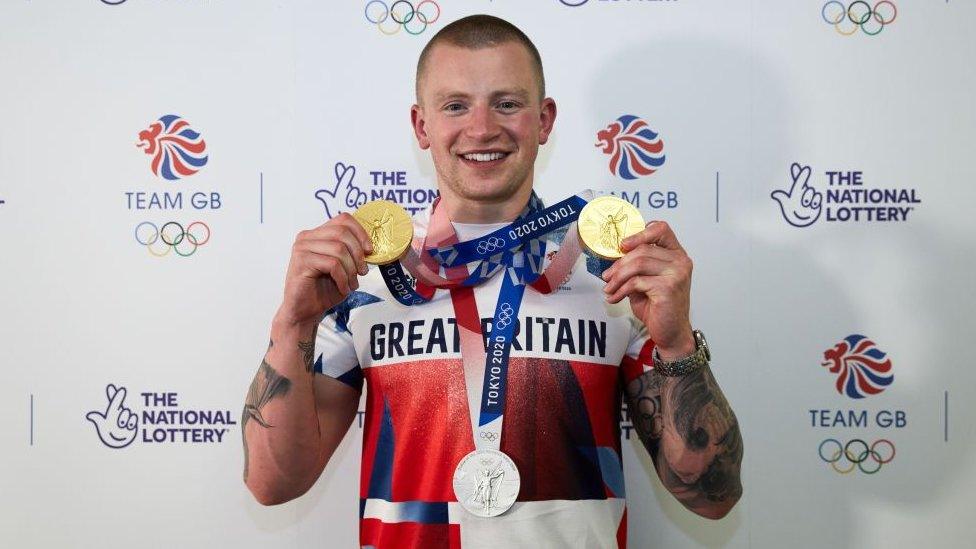Camelot to lose licence to run National Lottery
- Published

Team GB Olympic athletes, like Adam Peaty, have benefited from National Lottery funding
The company that has run the National Lottery since it was launched, Camelot, has lost out on the next licence.
The Gambling Commission has announced Allwyn Entertainment Ltd as its preferred applicant for the lottery's next licence, which starts in 2024.
It said it had received the highest number of applications to run the National lottery since the first licence was awarded in 1994.
Camelot has been named as the "reserve applicant" after four firms applied.
The National Lottery is one of the world's largest lotteries and has raised more than ┬г45bn for 660,000 causes across the UK.
It has also played a part in funding training and facilities over the past three decades for Great Britain's Olympic and Paralympic athletes.
Allwyn is a UK-based subsidiary of Europe's largest lottery operator Sazka, which is owned by Czech oil and gas tycoon Karel Komarek.
It signalled its intent to run the National Lottery by launching in early 2021. Its board includes former members of the London 2012 Olympics organising committee, Lord Coe and entrepreneur Sir Keith Mills, who sit on its advisory board.
In a statement, Allwyn said its proposal was "judged to be the best way of growing returns to good causes by revitalising the National Lottery in a safe and sustainable way".
"The appointment of Allwyn will breathe fresh life into the National Lottery," it added.
Camelot chief executive Nigel Railton said: "I'm incredibly disappointed by today's announcement, but we still have a critical job to do - as our current licence runs until February 2024.
"We're now carefully reviewing the Gambling Commission's evaluation before deciding on our next steps."
The Gambling Commission said it was "satisfied" that no application had been impacted by sanctions imposed by Western nations in relation to Russia's invasion of Ukraine.
"Our priority was to run a competition that would attract a strong field of candidates. Having received the most applications since 1994, it is clear that we've achieved just that," said Andrew Rhodes, the Gambling Commission's chief executive.
"I am confident that the success of the competition will lead to a highly successful fourth licence - one that maximises returns to good causes, promotes innovation, delivers against our statutory duties, and which ultimately protects the unique status of the National Lottery."
Related topics
- Published27 December 2021
- Published19 February 2020